Trump and Biden roll to victory, but show signs of weakness, on Super Tuesday: 6 takeaways
Donald Trump may have finally K.O.’d long-shot rival Nikki Haley's campaign in the 2024 Republican presidential primary on Super Tuesday.
The former president won 12 out of 13 states that had been called by 11 p.m. ET across different regions, and raked in large troves of GOP delegates when he scored victories in California, Texas, North Carolina and Virginia.
"They call it ‘Super Tuesday’ for a reason," Trump said late Tuesday evening from his Florida resort in Mar-a-Lago.
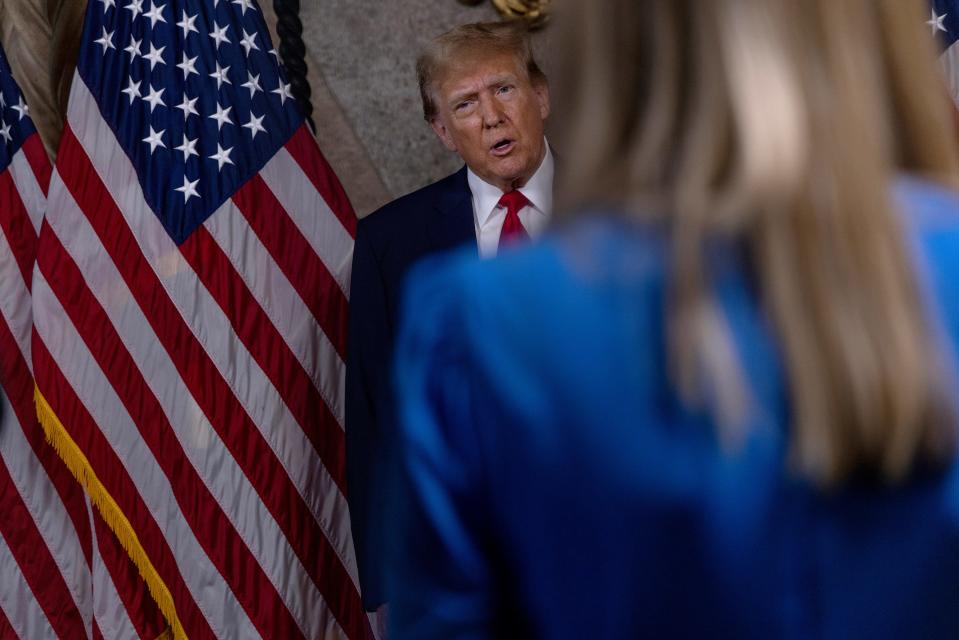
Nonetheless, Haley ? who served as Trump's UN ambassador ? continued to expose the former president's weaknesses with moderate voters and in swing states.
But after winning in the Supreme Court, which unanimously ruled this week that Colorado can't boot him off the ballot using an anti-insurrectionist provision of the Constitution, Trump is ready to declare victory in the Republican primary.
Millions of voters, from California to Maine, headed to the polls on March 5 with other critical choices on their ballot.
None stood out more than North Carolina, which will have the most competitive governor's race in 2024. That race will feature two candidates who can't be more different in a southern state that both parties recognize as critical.
President Joe Biden didn't have the night off either, but he might as well have when you look at the results.
The Democratic incumbent coasted through Super Tuesday, pummeling his rivals. But, similar to Trump, the president lacks enthusiasm from among some in his own party.
Here are the key takeaways from the Super Tuesday results.
Trump: Super Tuesday is ‘so conclusive’

Speaking at his watch party at his private club, Trump celebrated his winning streak.
"There's never been anything so conclusive," he said.
Trump made little effort to reconcile with Haley or her voters, but he promised that the GOP will soon come together.
"We have a great Republican Party with tremendous talent and we want to have unity, and we're going to have unity," he said. "And it's going to happen very quickly."
Trump then attacked Biden over the migrant crisis, before he criticized the U.S. as a “third world country” in terms of its border and elections. He went on to refer to COVID-19 as the “Chinese virus.”
Although Trump won every state that had been called when he spoke at 10 p.m. ET, he lost as much as one-third of the vote to Haley in some sizeable battlegrounds, such as Virginia and Colorado, and Haley won the state of Vermont.
Haley's underdog bid faces critical choice

The former South Carolina governor faces a moment that everyone knew was coming.
For months Haley has made the argument that Trump is too toxic to win over general election voters. But at every turn a majority of GOP voters have repeatedly rejected that viewpoint.
Trump’s already-huge delegate lead has now ballooned.
Her candidacy wasn't entirely a waste.
In the eight years that Trump has ruled the GOP, she put up arguably the best fight of any primary alternative. Haley broke a barrier as the first woman to win a GOP primary, and survived a crowded field that included a former vice president and the governor of the third largest state, who at one time polled well ahead.
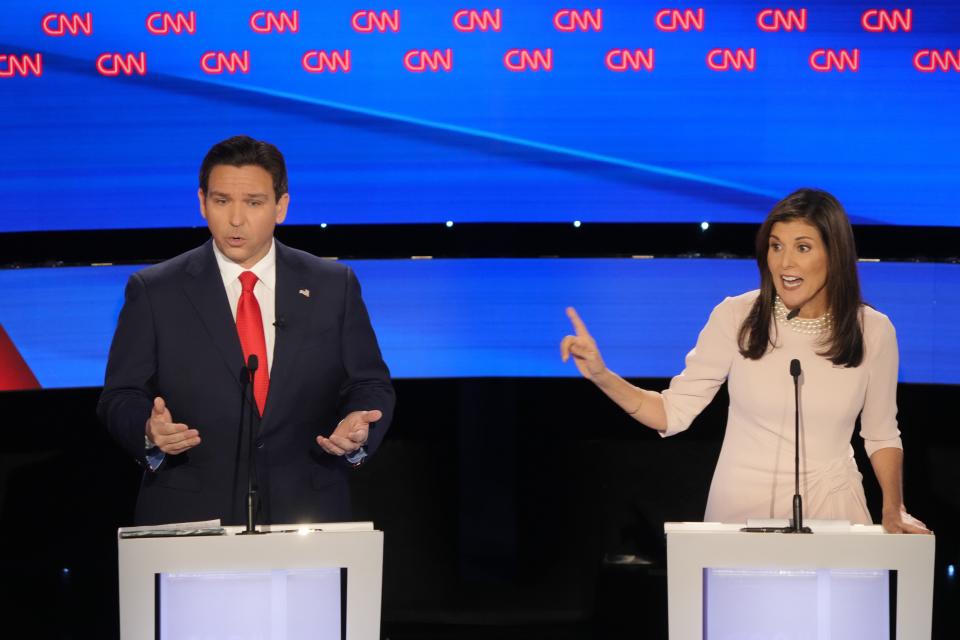
She eagerly points out that she's beating Biden in many general election polls, too. This could be her launching pad for 2028, if the MAGA base will ever accept.
Haley has shown Trump isn't invincible, and his campaign must worry about a significant portion of conservative-leaning voters who don’t want him to be the Republican standard bearer.
But she has no pathway to winning the nomination in 2024. That leaves several questions: will she quit? Will she endorse Trump? Will she reverse her vow not to run as a third party candidate?
Only she knows—for now.
Marquee governor's race takes shape in N.C.
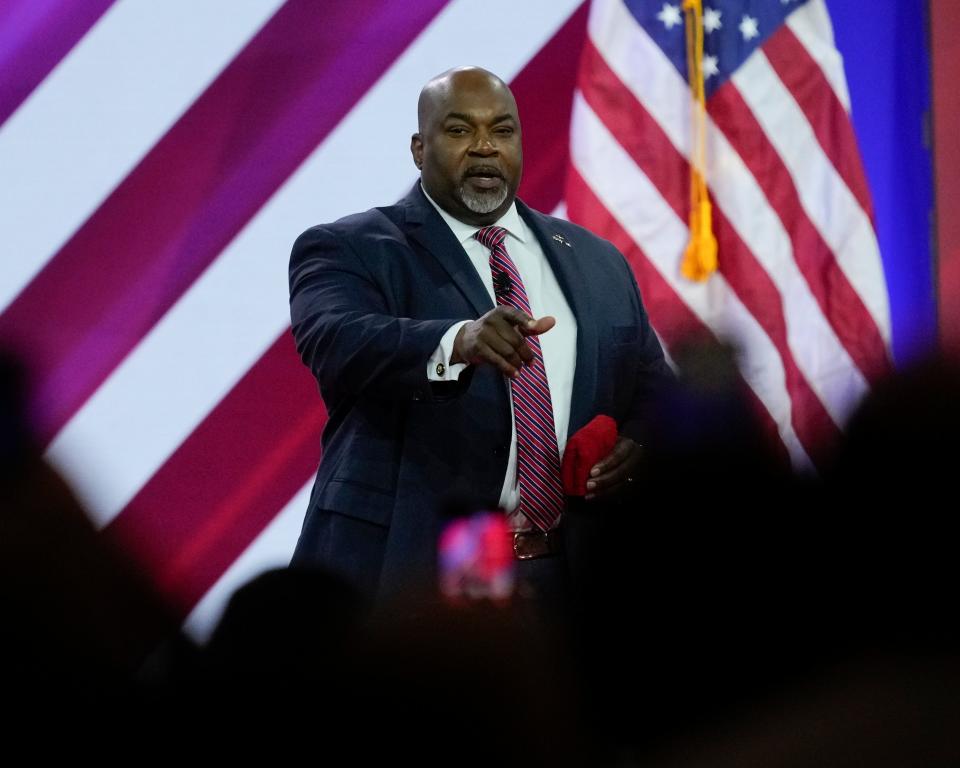
As expected, the two primary front-runners in North Carolina's much-anticipated race for governor this year prevailed.
Democratic Attorney General Josh Stein and Republican Lt. Gov. Mark Robinson will face off in the fall. In presentation and policy solutions, the two couldn't be more different: Stein is the liberal son of a famed civil rights attorney, while Robinson is a bombastic right-wing populist who called Martin Luther King, Jr. a "communist."
But this race is catching national attention as a yardstick for voter's appetites for various reasons.
Among the the 11 gubernatorial elections this year, North Carolina is one of just two ? along with New Hamsphire ? rated as a toss-up by election forecasters.
The Tar Heel State is also no longer a guaranteed GOP pickup at the presidential level either.
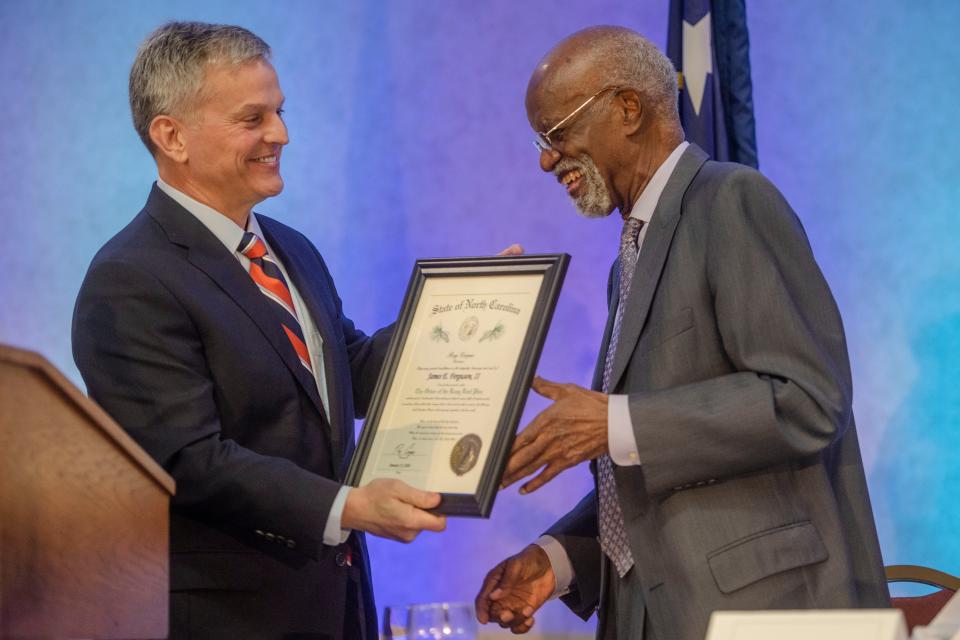
In each presidential contest since 2008, when Obama won the state, it has been decided by less than 4 percentage points including when Trump won it by less than 1.5 percent in 2020.
Progressives are pinning their hopes largely on Robinson's divisive culture war rhetoric ? including calling homosexuality "filth" and dismissing the Holocaust as "hogwash" ? and overall anger at restrictive abortion rules.
But conservatives believe another Trump wave can carry the bombastic GOP contender to victory by leaning into Biden's unpopularity and the migrant crisis at the southern border.
New N.C. voting rules tested
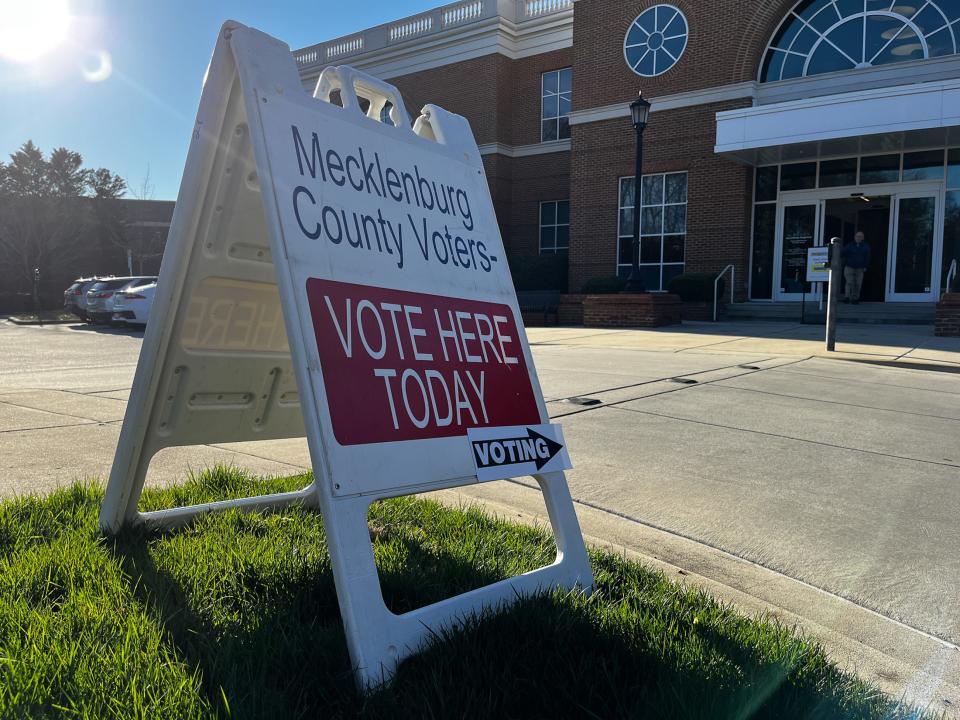
Tar Heel State voters had more to deal with than picking the top contenders in a critical governor's race on their hands Tuesday.
For the first time they had to navigate a trove of new election laws, including a required proof of voter ID at polls after its implementation was delayed for years due to multiple lawsuits.
Other changes were a ban on ballot drop boxes and curtailing the use of mail-in ballot returns.
Karen Brinson Bell, executive director with the State Board of Elections, told reporters Tuesday morning no major issues with the photo ID rule were reported.
Civil rights leaders and other grassroots activists, however, told USA Today on Tuesday there scants reports of confusion and widespread concern about "infrequent voters" being deterred by the new rules.
The fallout of these changes may not be fully understood until a final count of complaints by outside groups and the state's board of elections are tallied, but many express that more training and education will be needed ahead of November.
Biden cruises to victory

It is easy to forget, but Biden has a primary too ? although it is hardly competitive.
The president swept Rep. Dean Phillips, D-Minn., and author Marianne Williamson (who jumped back in) on Super Tuesday, drawing close to 90% of the vote in most states.
Biden's campaign has been operating in general election mode for months, touting his administration's accomplishments on infrastructure and student loan debt relief, to name a few.
Instead of rivals, Biden's opponent is a pestering skepticism that he can win in November.
Naysayers point to anemic poll numbers while other nervous Democrats worry about a rising anger among the activist left over Israel's war in Gaza, which could cause a critical portion of younger left-leaning voters to bolt.
Then there are persistent questions about the president's age and acuity, which infuriates White House and campaign officials.

That narrative isn't likely to go away, but Democrats are aggressively pushing back. Many spotlight Trump's own verbal lapses on the trail while others call attention the GOP front-runner's anti-democratic comments and draconian policies on various topics.
'Uncommitted' and... Jason Palmer?
This narrative about Biden's weaknesses wasn't helped by Minnesota where with 63% of precincts reporting in Minnesota, 20% of Democratic voters chose "uncommitted," while 69% chose Biden.
And a little-known challenger named Jason Palmer won the tiny U.S. territory of American Samoa by 11 votes, which awarded the Baltimore-based investor six delegates.
This article originally appeared on USA TODAY: Trump and Biden win on Super Tuesday: 6 takeaways
